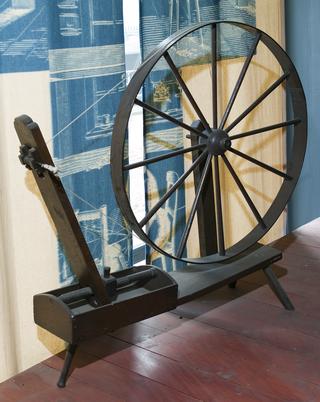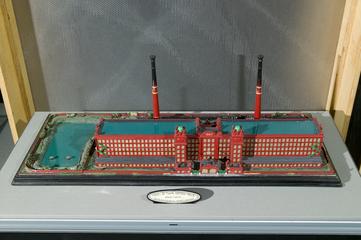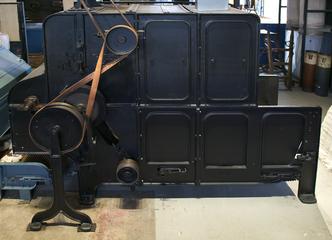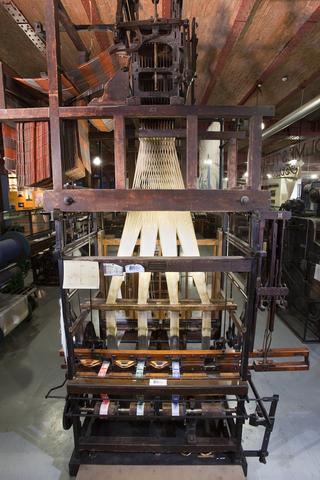
Knitted sample created during the development of Punchcard Economy by Sam Meech
- Made:
- 2013 in Manchester urban district
Knitted sample produced as part of the creation of Punchcard Economy artwork by Sam Meech in 2013.
Punchcard Economy is an artwork created by Sam Meech in his studio in Federation House, Manchester in 2013. Meech is an artist from Huddersfield, Yorkshire interested in the overlap and interplay between digital and analogue technology. The combination of the two inspires his artistic outputs.
Meech used data gathered from 116 participants about their working hours to produce a 5 metre by 3 metre knitted cotton banner using a Brother KH950i domestic knitting machine. The banner bears the slogan '8 Hours Labour 8 Hours Recreation 8 Hours Rest', which was first coined by industrialist and social reformer Robert Owen in 1817. Banners bearing this slogan were carried by campaigners for the 8 Hours Movement, a social campaign to regulate the length of a working day. The movement gathered support at a time when industrial production in large factories transformed working life and a working day could be as along as 16 hours.
The patterns knitted into the Punchcard Economy banner are visualisations of the data Meech’s participants recorded about their working hours. This data was filled out by participants on a paper grid, then translated into knitting patterns which was used to programme the knitting machine. Each hour worked outside of a core 8 hour working day is represented as a reverse stitch on the banner. In total there are 1,790,700 stitches, containing over 200 weeks’ worth of data from participants. The data showed a significant shift towards precarious or flexible working, with many people working at evenings and weekends, or logging odd hours late at night.
The banner was originally produced for an exhibition entitled Time and Motion: Redefining Working Life at FACT Gallery in Liverpool. Meech wanted to use the piece to create a critical discourse about contemporary working patterns in the digital economy. 200 years after Robert Owen founded the 8 Hours movement, developments in digital technology and shifts in working practices have led to a more flexible and sometimes precarious economy in which the notion of work is no longer tied to singular place or a rigid schedule.
Details
- Category:
- Textile Industry
- Object Number:
- 2023-368
- Materials:
- cotton (textile)
- type:
- knitted sample
- credit:
- Punchcard Economy, 2013 was originally commissioned by FACT, Liverpool. FACT is funded by Arts Council England and Liverpool City Council




